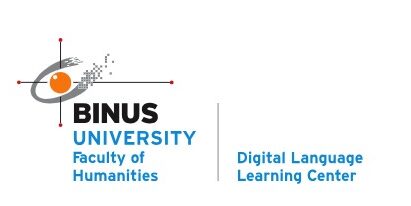[ARTICLE] Why Learning Korean Matters, Especially in Indonesia Today

In recent years, the Korean language has rapidly gained popularity across the globe, and Indonesia is no exception. From the rise of K-pop and K-dramas to the growing influence of Korean fashion, beauty, and technology, Korean culture has deeply embedded itself into the daily lives of many Indonesians—especially among the younger generation and university students. At institutions like BINUS University, where global awareness and cultural literacy are emphasized, learning Korean is becoming not just a hobby but a strategic advantage.
One of the most prominent drivers behind this trend is the global success of Korean popular culture, or “Hallyu” (Korean Wave). K-pop groups like BLACKPINK, TWICE, ENHYPEN and ATEEZ, and dramas such as Squid Game, Itaewon Class, and Extraordinary Attorney Woo have massive followings in Indonesia. These fans often feel motivated to learn the language to better connect with the content they love without relying on subtitles or translations. In BINUS, various student clubs and communities centered on K-pop, Korean dramas, and language exchange actively promote Korean language learning as a bridge between cultural appreciation and personal development.
But beyond entertainment, the importance of learning Korean in Indonesia today lies in economic and academic opportunities. South Korea is one of Indonesia’s major trading partners and foreign investors. Many Korean multinational companies like Samsung, Hyundai, LG, and Lotte operate extensively in Indonesia, offering job opportunities for Indonesians who can speak both Korean and English. For students at BINUS, a university known for its international programs and industry connections, learning Korean opens doors to internships, scholarships (such as the Korean Government Scholarship Program), and even careers in Korea or in Korean companies based in Indonesia.
Moreover, Korean universities consistently rank high in global education rankings, and they offer numerous exchange programs and affordable education options for international students. BINUS itself has built academic collaborations with Korean institutions, encouraging students to engage in cross-cultural experiences that include language immersion. Students who learn Korean are better prepared to take advantage of these global learning opportunities.
Social media also plays a significant role in making the Korean language more accessible. Platforms like YouTube, TikTok, and Instagram offer free Korean language tutorials, K-pop lyric breakdowns, and short language challenges. This informal learning is often supported by formal education, with universities like BINUS including Korean as a language elective, and offering Korean culture-related events and student-led initiatives.
In conclusion, learning Korean in Indonesia today is more than a trend—it’s a cultural, academic, and economic opportunity. For BINUS students and the broader Indonesian youth, being fluent in Korean can enhance personal passions, strengthen professional credentials, and foster deeper cross-cultural understanding. As Korea’s global influence continues to rise, Indonesian learners who invest in mastering the Korean language will find themselves ahead in a world where culture and communication increasingly intersect.



Comments :